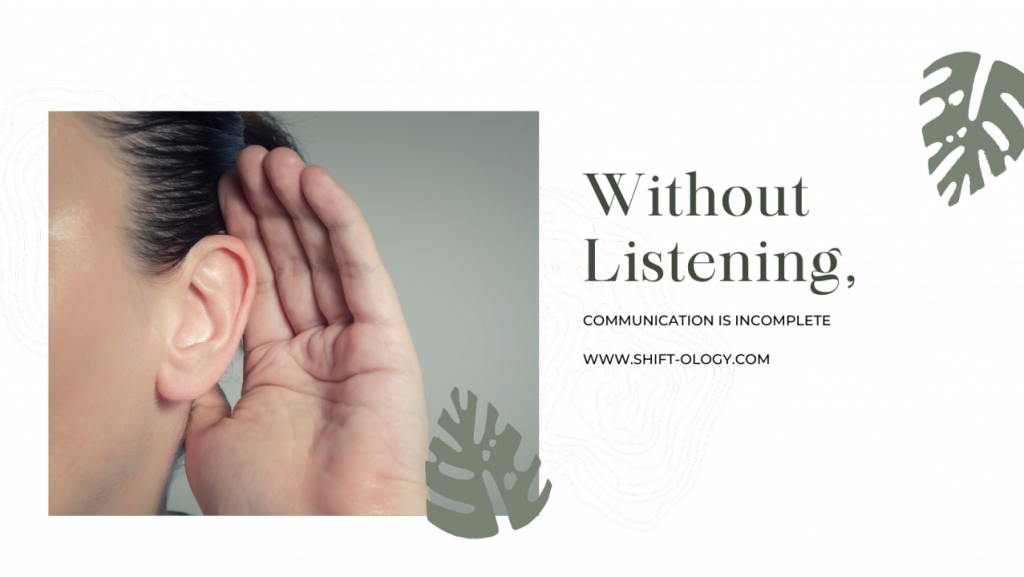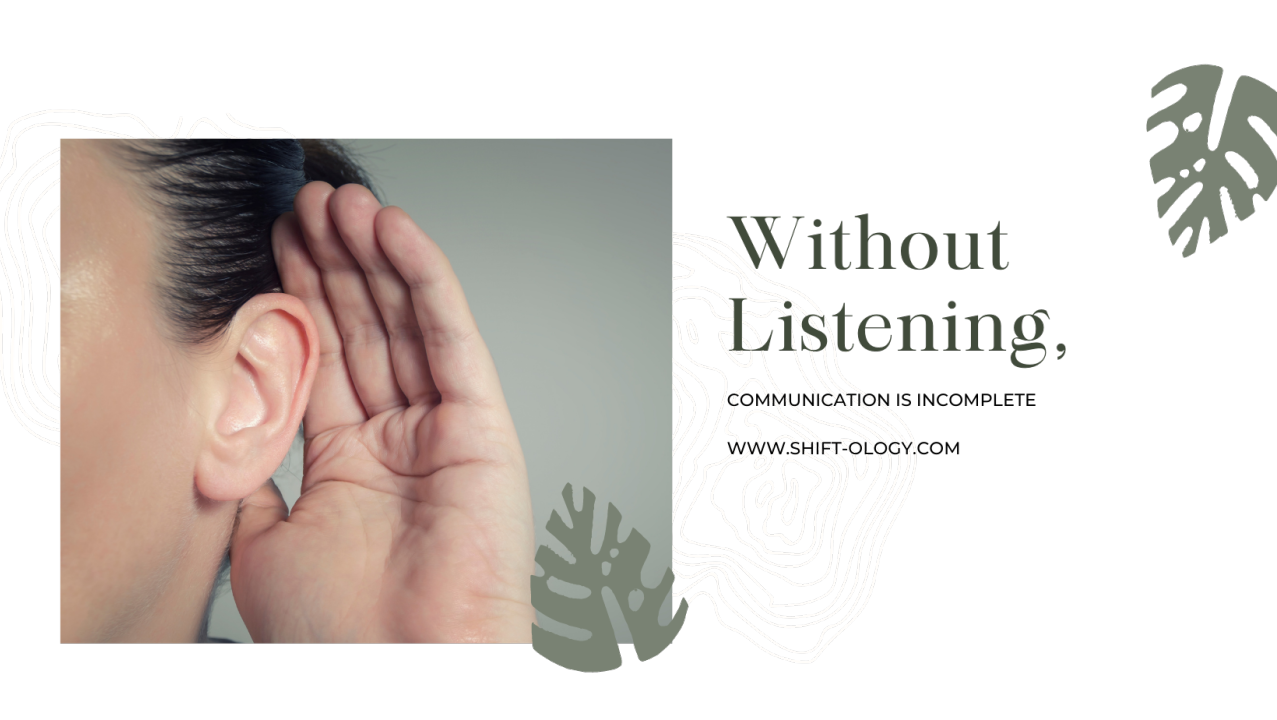
 by Melanie Wilt
by Melanie Wilt
Listening: the most undervalued, yet crucial communication skill. I think most Americans would agree that listening is a lost art and that perhaps our country could be more unified if we would all spend more time practicing this skill.
Without listening, communication is incomplete.
Communication is “the science of creating meaning,” and that science is made up of several specific skills that have to be honed and improved to achieve the intended outcome. Listening is the most important of these, yet it often takes a back seat. You see, it takes a sender and a receiver to create meaning. It’s easy to get hung up on being the sender who delivers a perfectly written speech or artfully designed visual. The effort you put into crafting your message is useless if listening never entered the process.
There’s an old adage that “If a tree falls in a forest and no one is around to hear it, does it make a sound?” In other words, we can talk until we’re blue in the face, but if nobody is listening, the effort is null and void.
It seems that many people have forgotten that we listen to understand. Active listening — when we engage and ask questions to understand — is even better.
Listening starts by focusing on your audience rather than yourself. While you may have an important message to deliver, it will fall flat unless the audience is able to meet you among shared values. Before preparing a speech or a campaign, take time to research the audience and understand what’s important to them. If you have the budget and ability, conduct a focus group or a survey to get to the root of what drives and empowers them to choose their opinions, attitudes and ideas.
Be present when communicating. Listen not only for words, but for verbal and nonverbal cues. These come in the form of facial expressions and body language and can indicate whether someone is moving towards or away from your message. Avoid distractions like cell phones and email pings.
We’ve all got that one friend or family member who can’t leave a conversation without being right. He or she wants to argue each point you share. They aren’t listening, they are waiting for a pause in the conversation to respond. Nobody wants to be that guy! Active listening allows you to fully engage in the conversation and hear things you may otherwise have missed, as you seek to understand, not to be right or sound smart.
An important distinction here is that it’s ok to disagree! (More on that in my article on Civil Discourse.) If you listen and still disagree, you walk away from the conversation knowing that your position is more fine-tuned than it was before. But, you’ll need to better understand those who see things in a different light if you’ll ever convince them to come around.
And, the only way to do that is by listening!
Want more help examining your numbers game? Contact me via LinkedIn!

